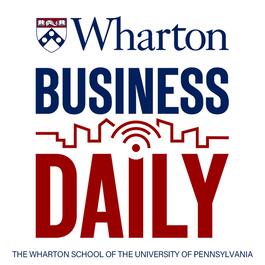
This Week in Business
Bringing together top leaders, innovators and renowned faculty from the Wharton School of the University of Pennsylvania discussing topics that matter to consumers and the business world. Hosted on Acast. See acast.com/privacy for more information.
Show episodes
Ethan Mollick, Co- Director of Wharton Generative AI Labs, examines how artificial intelligence continues to advance without slowing, highlighting its growing business adoption, potential labor market effects, and the importance of guardrails as organizations prepare for 2026. Hosted on Acast. See acast.com/privacy for
John Zhang, Wharton Marketing Professor, discusses his recent analysis of free versus fair trade, explaining the economic assumptions, political incentives, and distributional consequences of tariffs in today’s global trading system. Hosted on Acast. See acast.com/privacy for more information.
Lynn Wu, Wharton Associate Professor of Operations, Information and Decisions, explains why today’s AI investment frenzy, while exhibiting bubble-like characteristics, represents a vital phase of technological evolution—driving infrastructure development, enabling future economic spillovers, and laying the groundwork f
Itamar Drechsler, Wharton School Professor of Finance and Co-Director of the Rodney L. White Center for Financial Research, explains the economic forces behind high credit card interest rates, highlighting the roles of defaults, operating costs, marketing expenditures, and market power in shaping what consumers ultimat
Serguei Netessine, Professor of Operations, Information and Decisions and Senior Vice Dean for Innovation and Global Initiatives at the Wharton School, discusses new research analyzing how Amazon fulfillment centers affect county-level employment, median household income, and poverty rates. Hosted on Acast. See acast.c
Stefano Puntoni, Wharton Marketing Professor and co-director of the Wharton Human AI Research Project, discusses emerging research on AI companionship, its effects on loneliness and mental health, and the complex safety, ethical, and legal considerations shaping this rapidly evolving space. Hosted on Acast. See acast.c






